Live Chat: Fight Cancer with Your Fork with Karen Collins
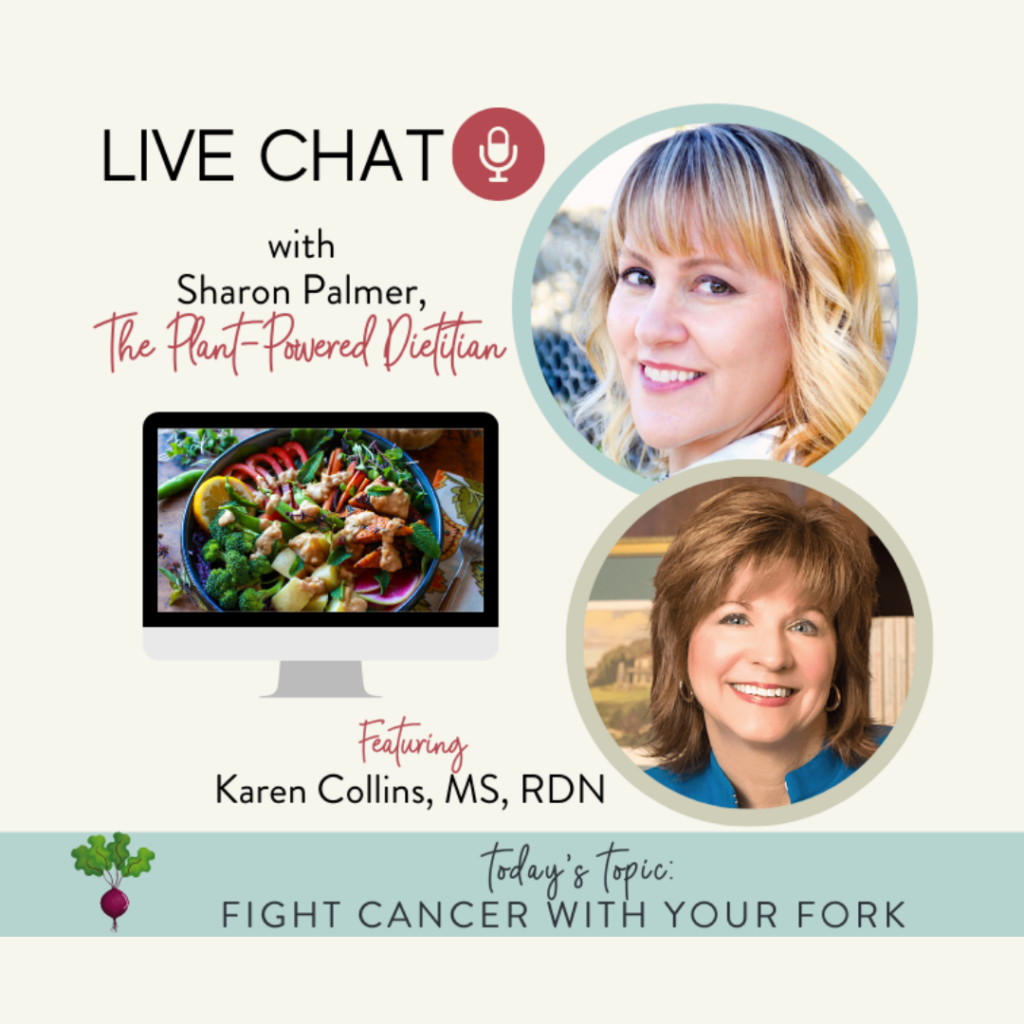
Learn how to fight cancer with your fork with these top nutrition tips from expert Karen Collins, MS, RD.
You might be surprised to learn that diet is a powerful influencer on your risk of developing cancer over your lifetime. Contrary to popular opinion, it is not just your genes that dictates whether you will develop this deadly disease. In fact, you can prevent 40% of cancers through a healthful lifestyle, which includes a wholesome plant-based diet. Recently the American Institute for Cancer Research (AICR) released their Third Expert Report, which provides an analysis of the latest research on diet and cancer. This highly respected scientific report points the way to how you should fuel your diet in order to give you the best odds diet approach to fighting cancer.
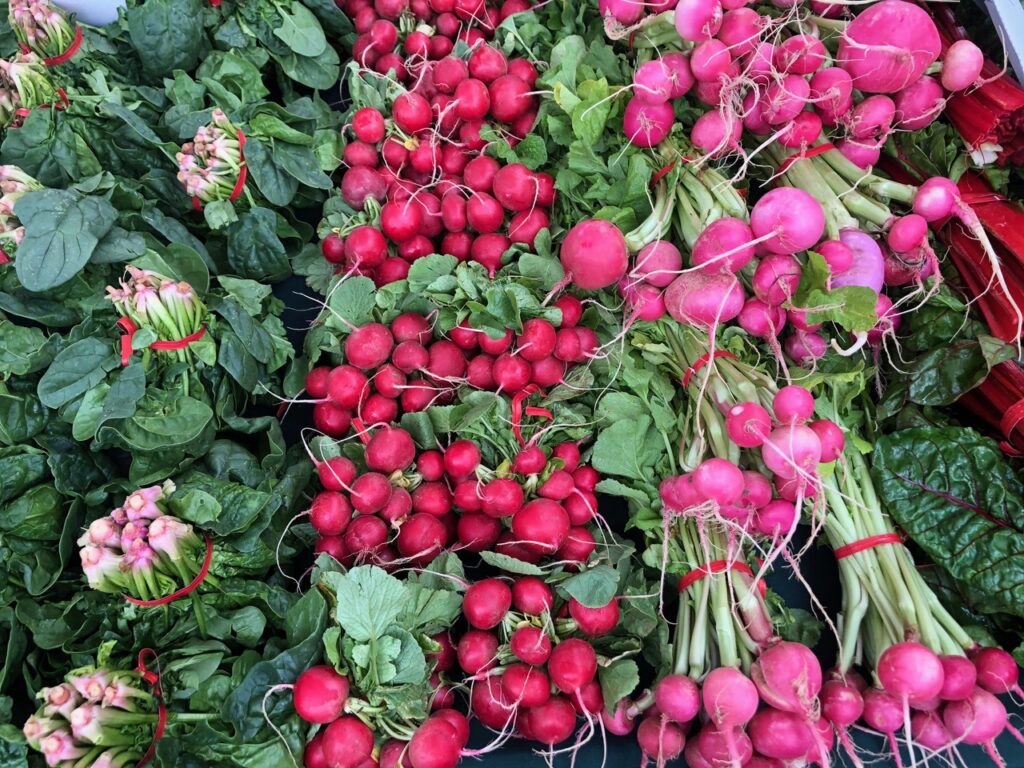
Cancer really resonates with me, as all of the women in my immediate family (mother, aunt, grandmother, sister) have had at least one bout of cancer—primarily breast cancer. I am the only one who has not fallen prey to this awful disease. Fortunately, my mother is a triple survivor of cancer, my aunt has survived it once, and my sister survived stage 3 breast cancer (which she developed at a very young age) by getting the very best care and support possible. Sadly, my grandmother died before I ever met her, and my uncle Jimmy died of colon cancer in his early 50s, leaving behind three young children. I believe the most important strategy for fighting cancer is to do everything in your power to prevent it with lifestyle before it has a chance to develop, and follow your health care practitioner’s advice for screening.
I sat down with acclaimed nutrition and cancer expert Karen Collins, MS, RDN to learn about the latest science on diet and cancer prevention. She has some of the very best advice to offer on eating to fight cancer. Karen is answering top questions, including which foods to include in your diet, which foods to avoid, and how to eat to prevent a recurrence of cancer. Plus, she addresses top myths on diet and cancer, such as the impact on superfoods, supplements, and sugar on cancer. We are so lucky to have her with us to share her words of wisdom.
Fight Cancer with Your Fork, with Karen Collins and Sharon Palmer
Join me in this live chat with renowned cancer expert Karen Collins, MS, RDN, nutrition advisor for AICR, as we talk about ways you can reduce your risk of cancer with your diet. Check out our recorded interview below, as well as our transcribed chat on Karen’s best tips for fighting cancer with a plant-based diet.
Things You Will Learn in This Episode:
- How important the connection between diet and cancer really is.
- Why you should eat a healthy, plant-based diet to reduce your risk of cancer.
- Which foods you should put on your plate to fight cancer with your fork.
- The latest science on diet and cancer risk.
- Common misbeliefs and misinformation about cancer development.
- How you can fill your plate with cancer-protective foods.
Follow Along with Karen’s Top Cancer Resources:
- Cancer Health Check (AICR): An 11-question interactive online tool that provides personalized feedback based on how people’s habits compare to the latest recommendations.
- AICR Cancer Prevention Recommendations: the complete list of the recommendations, with the opportunity to click on any for further details.
- Karen Collins’s Blog, SmartBytes
- Karen Collins’s Website
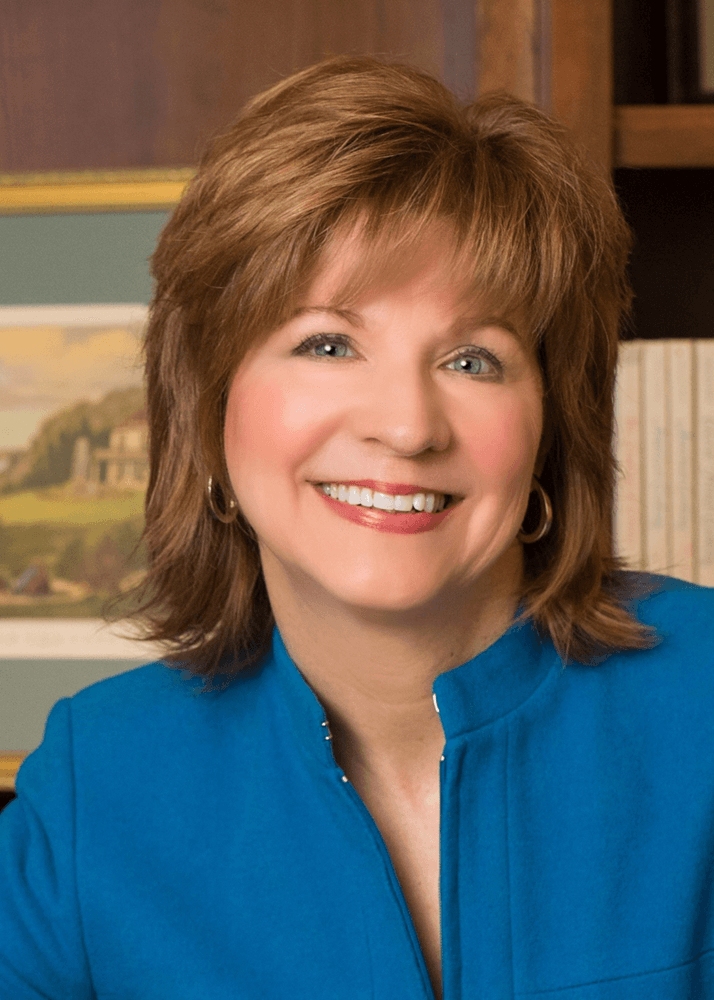
The Latest Strategies to Fight Cancer with Your Fork with Karen Collins
Sharon: Tell us a little bit about the Third Expert Report, and why it is so significant?
Karen: The American Institute for Cancer Research (AICR) Third Expert Report is the latest review of current evidence on how choices we make about what we eat and drink, and how active or sedentary we are, influence cancer risk and survival. Much more than a simple article on the subject, this report is truly the gold standard of information on this topic and provides insights and recommendations that people can trust.
It’s the result of an intense process of gathering and analyzing the best available scientific research, with that work reviewed by outside experts. An independent panel of researchers, the Expert Panel, then evaluated the strength of the evidence relating each diet, weight, or physical activity factor to 17 different forms of cancer. They graded the strength of the evidence based on specific criteria, and developed cancer prevention recommendations, focusing on evidence categorized as strong.
The aim of the report is to provide people with sort of a North Star… a way to steer through the piles of information available today, and focus on the choices that are most likely to make a difference against cancer. This is especially important at a time when it’s easy to be confused and overwhelmed by conflicting headlines. The report even provides goals that identify achievable steps people can use to meet each recommendation.
Whatever the influence of environmental factors and family history, the report shows us that the evidence is strong that we can make a difference against this disease with everyday choices we each make.
Of course, the report is also a valuable tool for researchers. By summarizing the state of current research and highlighting critical questions where we need answers, AICR’s Third Expert Report provides a roadmap to keep research progress against cancer moving forward.

Sharon: How powerful is the connection between diet and cancer?
Karen: Around 40% of cancers are preventable. That’s nearly 723,000 cases in the US every year.
Part of that prevention comes from avoiding tobacco, and excess sun exposure. And evidence is getting stronger and stronger showing that getting regular physical activity and limiting the amount of time you spend sitting can each play an important protective role, too. The choices in what you eat and drink are also a vital part of this package of lifestyle choices that protect against cancer.
Studies using a score to identify how closely people come to meeting cancer prevention recommendations show that the closer people come to the whole package of recommendations, the more powerfully they protect themselves against cancer. But, fortunately, “perfect” scores aren’t needed to make a difference.
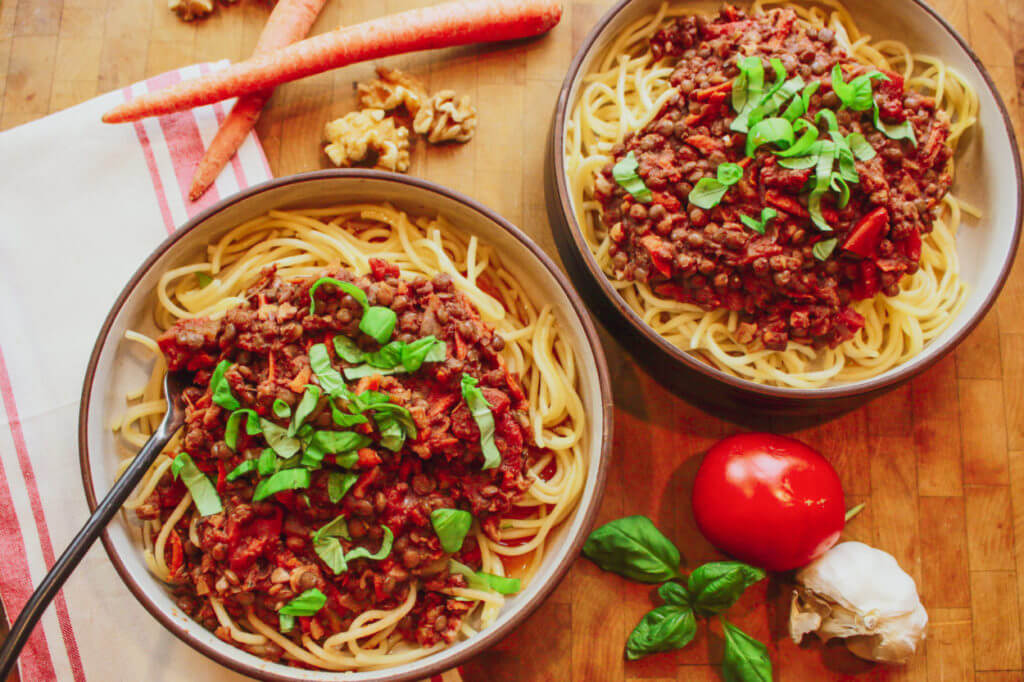
Sharon: What are the main takeaways from the Third Expert Report that consumers should know about regarding lowering their cancer risk with diet?
Karen: Out of all the factors that studies show might have some link, these are the steps people can take that are supported by the strongest evidence, which the Expert Panel identified as unlikely to change over time.
- Eat a Diet Rich in Whole Grains, Vegetables, Fruit, and Beans — Make whole grains, vegetables, fruit, and pulses (legumes) such as beans and lentils a major part of your usual daily diet. These are the foods that provide dietary fiber, which helps protect against colorectal cancer, the third most common cancer in the U.S. It’s important to understand, though, that these foods are vital for much more than fiber: Relatively unprocessed plant foods provide phytochemicals, vitamins, and minerals that, as part of the whole food, may provide protective effects on carcinogen metabolism, inflammation, DNA health, gut microbes, and more. This recommendation is essentially calling for a plant-based diet – in the term’s broadest sense. Some people might meet this recommendation with a vegetarian diet, but it can also be met with any kind of eating pattern that gives plant foods the largest portion of the plate. And whole grains, vegetables, fruits and pulses each provide their own special attributes with cancer-protective potential.
- Limit Consumption of Red and Processed Meat – Eat no more than moderate amounts of red meat, such as beef, pork, and lamb. Eat little, if any, processed meat. Processed meats are choices such as bacon, ham, sausage, hot dogs, and salami. This term refers to meat preserved by smoking, curing, salting, or the addition of chemical preservatives, and these meats increase risk of colorectal cancer. They should be saved for occasional use only, if at all. Red meat includes beef, lamb, and pork. It’s also linked with greater risk of colorectal cancer. But for people who want to include it as part of an overall healthy diet, they should limit amounts to no more than 12 to 18 ounces a week; it’s amounts beyond this that are of concern for cancer risk.
- Limit Consumption of “Fast Foods” and Other Processed Foods High in Fat, Starches, or Sugars. Studies show that these foods tend to promote weight gain, overweight, and obesity when people consume them frequently or in large portions. Since excess body fat and weight gain is tied to so many cancers, it makes sense to minimize these foods and leave room for foods that seem to be protective. Evidence does not support a direct effect on cancer risk. It’s also important to note that modest amounts of nuts, seeds and healthy oils are not linked to weight gain, and there’s no reason to avoid them.
- Limit Consumption of Sugar-Sweetened Drinks – Drink mostly water and unsweetened drinks. This is another recommendation that isn’t associated with a direct effect on cancer risk, but a way to reduce cancer risk by avoiding weight gain. So make water and other unsweetened drinks such as unsweetened tea or coffee your first choice of beverage.
- Limit Alcohol Consumption – For cancer prevention, it’s best not to drink alcohol. Alcohol sometimes has a health halo, with people over-emphasizing messages about it potentially offering some heart health benefits. However, evidence is now stronger than ever that alcohol is a cause of several different cancers. Alcohol is metabolized to a compound that is a carcinogen, and its link to breast cancer risk probably also involves the increased levels of estrogen it can cause.
- Be a Healthy Weight – Keep your weight within the healthy range and avoid weight gain in adult life. Excess body fat is linked to greater risk of at least 12 cancers. This means that as you follow the recommendations above about foods to make a major part of your plate, and foods to limit, it’s important to choose foods and portions that help you reach and maintain a healthy weight. Adult weight gain can lead to inflammation and unhealthy hormonal and metabolic changes that can promote cancer development. This recommendation is not about targeting a weight that’s unrealistic for any individual. Avoiding typical weight gain can be an important goal, or for people with overweight or obesity, even modest weight loss could potentially reduce cancer risk.
It’s also important to note that physical activity is another vital part of a lifestyle to lower cancer risk. Great eating habits don’t remove the need to target healthy habits in this aspect of lifestyle, too. Walking more and sitting less seems to reduce cancer risk both directly and through help maintaining a healthy weight.
And for mothers who have the opportunity to breastfeed, this is an excellent choice to support babies’ health, and can help reduce mothers’ risk of breast cancer, too.

Sharon: Are there any particular foods that seem promising for cancer prevention?
Karen: Rather than focus on particular nutrients or super foods as a way to reduce cancer risk, today’s best evidence steers us toward focusing on eating habits in which a variety of nutrient-rich plant foods predominate.
A wide range of plant foods show potential protective benefits through nutrients and phytochemicals that seem to support antioxidant and anti-inflammatory defenses, as well as influence on body signaling systems that direct cells either toward or away from cancer development. Whole grains are linked with lower risk of colorectal cancer. And limited evidence highlights vitamin C-rich foods and the dark green and deep orange vegetables and fruits that provide beta-carotene and other carotenoids.
Other plant foods – cruciferous and onion family vegetables, for example — contain compounds that may add protection. We need further studies to clarify whether factors like preparation methods or individual differences in genetics or gut microbes affect their influence on cancer risk. So much exciting research is underway!
Sharon: How does this apply to preventing a recurrence of cancer if you’ve already had cancer, or if you are currently fighting cancer?
Karen: Once cancer survivors complete their initial treatment, the report recommends that they follow its cancer prevention recommendations if they can, unless advised otherwise by their personal healthcare provider.
Cancer survivors are a diverse group; depending on the type and stage of cancer and its treatment, their nutritional needs can differ quite a bit. Some people can follow these recommendations from the time of diagnosis. Others may have effects of cancer or its treatment that make other aspects of diet and eating a higher priority for a while.
We know that nutrition and physical activity can be important in many ways. So the report emphasizes that people who have been diagnosed with cancer should have access, as soon as possible, to nutritional care and guidance on physical activity from trained health professionals who can take into account their individual needs.
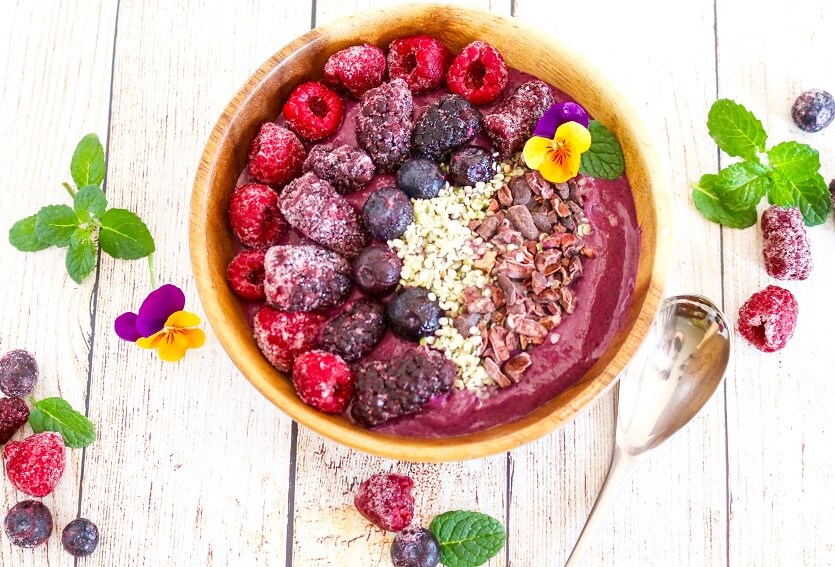
Sharon: Does the research also shine the light on common beliefs and misinformation about cancer?
Karen: Most Americans eat and drink too much sugar, so it’s smart to look for ways to cut back. But good quality research does not show that avoiding all sugar lowers risk of getting cancer. On the other hand, cutting back on excess sugar could help in three ways: avoiding big surges in insulin that seem to stimulate cancer cell growth; helping you reach and maintain the healthy weight that reduces cancer risk; and making room for a wide variety of cancer-protective foods like vegetables, fruits, whole grains and beans.
There are lots of misconceptions about alcohol: Cancer risk relates to all forms of alcohol, including wine. Red wine, especially, has a “health halo”. But despite laboratory findings on resveratrol, a natural plant compound found in red wine, human research doesn’t support red wine as different from other alcoholic beverages when it comes to cancer risk.
Many people believe that nutritional supplements can help lower cancer risk. But despite potential benefits suggested based on laboratory studies, research in humans doesn’t support supplements as an effective strategy to reduce cancer risk. The saying, “If some is good, more is better,” does not apply here. Achievable amounts of nutrient-rich foods, swapped as replacements for foods low in nutrients, are enough to lower cancer risk. Besides, getting nutrients and phytochemicals (natural plant compounds) from food brings a whole range of protectors that can act in multiple ways against cancer development.

Sharon: What is your bottom line advice for fighting cancer with your fork?
Karen: I think one reason people often either focus on supplements or else just give up on reducing cancer risk is that eating and exercise choices that make a difference are out of reach for them. The new AICR report affirms that doable steps each of us can take are effective.
Make vegetables, fruits, whole grains and pulses (beans and lentils) the heart of your plate. But don’t simply add them to your current eating habits. Look for where you currently have excess amounts of sweets, processed snack foods and French fries, sugary drinks or red and processed meats. Swap the foods with protective potential to replace or reduce your portion of these less-healthful choices.
Aim to gradually create healthy eating habits that you can stick with as a long-term lifestyle. Doing something so rigid you can’t stick with it won’t provide the protection you seek. Explore new ways to prepare these nutrient-rich plant foods so that you savor the taste of your cancer-protective eating habits.
About Karen Collins
Karen Collins is a registered dietitian nutritionist who is a consultant, speaker and writer focused on the intersection of cancer prevention and survivorship with heart health. Her trademarked tagline, “Taking Nutrition from Daunting to Doable”, highlights her passion for helping people see beyond headlines and put complex information in perspective within the “big picture” of overall research.
Karen serves as Nutrition Advisor to the American Institute for Cancer Research (AICR). She has authored multiple peer-reviewed book chapters and research summaries for health professionals, and over 2000 articles for the public. Karen also writes a blog, Smart Bytes®, which runs on her website, and she speaks at research conferences for health professionals all over the country.
A Fellow of the Academy of Nutrition and Dietetics, Karen holds a Bachelor of Science degree in dietetics from Purdue University and a Master’s in nutrition from Cornell University. Connect with her on Twitter KarenCollinsRD and Facebook KarenCollinsNutrition.
Check out some of Sharon’s favorite interviews on a healthy lifestyle:
Eating for IBS on a Plant-Based Diet with Kate Scarlata
How to Enjoy Alcohol Healthfully
How to Eat a Healthy, Plant-Based Mediterranean Diet with Rahf Al-Bochi



I am a 79 year old woman. I was diagnosed with stage IV prostate cancer almost eight years ago. I was told from day one, ‘no chance of cure,’ and they will only try to give me as much more time as possible. . I thought I will die with it as I had lost faith in the entire medical profession. I was convinced they didn’t care and do not want cancer cured. 2 years ago our family doctor introduced and started me on Healthherbsclinic Cancer Herbal Tincture, 6 months into treatment I improved dramatically. At the end of the full treatment course, the disease is totally under control. No case of Cancer, difficulty with urination, and other I’m strong again and able to go about daily activities.
It’s always a huge blow to be diagnosed with this disease. Like you, my entire maternal side has been affected by various cancers (mostly breast cancer, even some of the men) and it’s taken its toll. However, it’s not necessarily a death sentence. My grandmother lived to be 96, after having lost one, then the other breast to cancer while in her early 60’s. My mother has never had an occurrence of this type of cancer, but was diagnosed with Hodgkin’s Lymphoma. She is now 81 and going strong! Each person’s path will be an individual one — but loving support from family and friends, a strong attitude, and a great diet will give anyone the Best Chance Ever. You have my sincerest wishes to find your own path forward, and to be as vibrant and alive as my maternal guides were and are! Blessings, Sharon…
Thank you for your kind thoughts and for sharing your story. You are so right that everyone’s journey is different and it is not a death sentence to receive a diagnosis of cancer. I think sharing our journeys and what works for each of us is so powerful. I have learned so much from others already, and I find it very comforting.